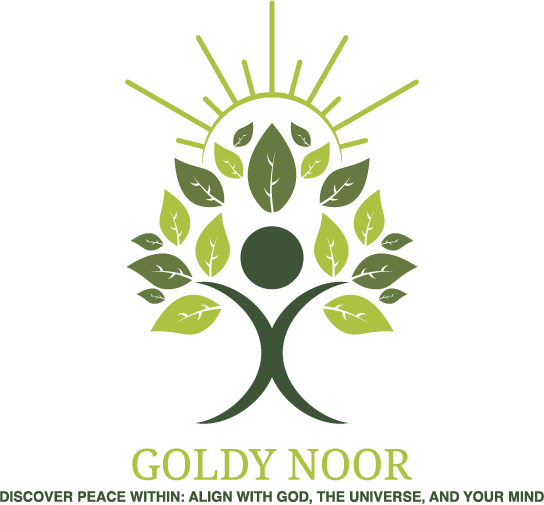
Divine Secrets Unlocked: How Cultures Around the World Perceive God
Across deserts, jungles, and mountain peaks, humanity has always sought connection with something greater than ourselves. For some, that means a single, omnipotent Creator; for others, a host of gods woven into every raindrop and stone; and for still others, a living spirit humming through forests and rivers. These divergent visions of the sacred do more than explain the mysteries of existence—they offer profound tools for coping with stress, finding purpose, and building community. By exploring the layers of monotheistic devotion, polytheistic reverence, and indigenous earth-rooted spirituality, we uncover how faith—in all its forms—becomes an unexpected ally in nurturing mental well-being.
Whether you pause for prayer in a serene masjid, sunlit chapel, chant mantras beneath a Bodhi tree, or sit in silence beside an ancient oak, you tap into practices cultivated over millennia to steady the mind and heal the heart. In the chapters that follow, we’ll journey through three distinct spiritual landscapes, discovering rituals, narratives, and rhythms that have soothed souls and sharpened resilience. As you journey forward, you’ll discover how belonging, purpose, ritual, and awe – timeless foundations shared by many traditions – can turn inner struggle into steady confidence and peace.
Ready to unlock the world’s divine secrets and enrich your mental wellness toolkit? Let’s begin.
- Monotheism: One God, Steadfast Anchor
In the world’s major Abrahamic traditions—Judaism, Christianity, and Islam—devotion centers on a single, all-powerful deity. This singular focus brings:
- Clarity of Purpose: Believers view their lives as a part of a bigger plan. This helps ease their worries, as they view their struggles as meaningful parts of a larger story of creation, purpose, and hope.
- Resilience in Adversity: Challenges in life are like tests that help shape and strengthen our character. Believing in God’s justice and hoping for things to get better can help us stay grateful, even during tough times.
- Community Solidarity: Weekly gatherings—whether in mosque courtyards, church altars, or around synagogue scrolls—establish enduring human connections. Collective worship calms the mind and provides a built-in support network to buffer loneliness and stress.
Ethical responsibility like compassion, forgiveness, and service don’t just benefit others—they lift the giver, too. Research links generous conduct with higher life satisfaction and lower rates of depression, showing that acts of kindness can be powerful prescriptions for mental wellness.
- Polytheism & Eastern Mysteries: A Kaleidoscope of Divinity
Long before monotheistic religions took hold, polytheistic traditions flourished, honoring many gods who represented the forces of nature and human qualities. Today’s Eastern faiths—Hinduism, Buddhism, Taoism—extend these ancient insights:
- Personalized Devotion: With different gods symbolizing qualities like wisdom, compassion, and strength, individuals can connect with the one that matches their emotional needs – calling on Saraswati for learning, Kuan Yin for mercy, or Durga for courage.
- Awe of the Cosmos: Respect for mountains, rivers, and the movements of the stars inspires feelings of awe – an experience that, according to modern neuroscience, helps quiet overthinking and boosts mood. Being in the presence of vastness – whether gazing at a sky full of stars or admiring detailed temple carvings – draws our focus outward and helps break the cycle of self – criticism.
- Mind–Body Harmony: Practices like yoga, tai chi, mantra chanting, and Taoist “wu wei” (effortless action) teach acceptance of life’s impermanence. By aligning breath, movement, and thought, these disciplines help individuals navigate life’s ups and downs with calm and balance.
This diverse approach invites spiritual exploration – trying out different practices like meditation, devotional singing, or mindful walking – to create a personal path to inner harmony and balance.
- Indigenous Wisdom: Earth as Living Sanctuary
For many indigenous cultures, there is no separation between spirit, land, and community. Instead, the divine is present in every part of the natural world:
- Animism & Kinship: Trees, rivers, and animals are honored as sacred companions, nurturing a deep sense of connection that helps ease feelings of loneliness and disconnection.
- Rituals of Renewal: Seasonal ceremonies—harvest festivals, moon-phase gatherings, vision quests—synchronize human lives with Earth’s rhythms, offering stability in an ever-changing world.
- Forest Bathing’s Ancient Origins: Modern forest bathing, or “shinrin-yoku”, reflects ancient traditions – immersing oneself in nature helps to reduce cortisol levels, calm the heart rate, and restore the mental clarity.
Yet these heritages have endured traumas of colonization and environmental degradation. Returning to traditional land practices and ancestral stories help revive culture and heal, bringing people together and making communities stronger.
Four Pillars of Faith and Mental Wellness: Foundation for Inner Strength
Faith- regardless of tradition or background – is more than belief. It’s a way of seeing the world with hope, trust, and purpose. When grounded in meaningful principles, faith can serve as a steadying force for the mind and heart. Below are four universal pillars of faith that also play a vital role in supporting mental wellness.
1-Trust- Letting Go of Control
At the heart of faith lies trust – in a higher power, in the unfolding of life, or in the wisdom of the universe. This trust helps release the burden of trying to control everything. It offers peace in uncertainty and teaches us to rest in the knowledge that we are not alone. Psychologically, this can ease anxiety and reduce the mental strain of overthinking or fear of the unknown.
Trust allows the mind to rest and heart to breathe.
2- Purpose – Finding Meaning in Life
Faith gives us a sense of purpose beyond day-to- day survival. Whether through service, love, or spiritual growth, it connects us to something larger than ourselves. This sense of meaning is a key factor in emotional resilience and overall mental health. People with a clear sense of purpose often experience greater motivation, reduced depression, and deeper satisfaction with life.
A meaningful life is a mentally healthy life.
3- Hope – Holding on Through Hard Times
Faith keeps the flame of hope alive, even in darkness. It assures us that storms will pass, healing is possible, and growth can come from pain. Hope fuels perseverance and softens the edges of suffering. It gives the mind a reason to look forward and the heart a reason to endure.
Hope doesn’t erase pain, but it gives it a direction.
4 – Connection – Belonging to Something Greater
Whether through community, prayer, nature, or sacred practices, faith nurtures a sense of connection. This connection counters loneliness, a major cause of emotional distress. Knowing that we are part of something sacred-be it divine, universal, or communal- soothes isolation and strengthens our emotional core.
Connection is the soil in which peace and joy can grow.
A Healing Foundation
These four pillars – trust, purpose, hope, and connection – form a quiet foundation under our mental and emotional lives. When one feels weak or shaken, the others can offer support. Together, they nurture a grounded spirit, a calmer mind, and a more resilient self.
Faith, in this broad and inclusive sense, is not about rigid belief, but about inner alignment – a deep remembering of who we are, what we live for, and what sustains us through every season of life.
Your Invitation to the Sacred
Today, you don’t have to adopt a new religion—just try one simple practice:
- Pause and Breathe: Close your eyes for a minute, inhale deeply, and imagine connection to something greater—an all-knowing presence, the rhythm of the cosmos, or the living pulse of the earth.
- Observe with Awe: Step outside, notice the texture of bark or the song of a bird. Let that sense of wonder anchor you in the present moment.
- Share and Connect: Invite a friend to join you in a gratitude ritual—light a candle, exchange what you’re thankful for, and feel the bond deepen.
In these small acts, you’ll begin unlocking divine secrets: timeless practices that fortify your mind, soothe your spirit, and remind you that, across cultures and centuries, we all share the universal quest for meaning and resilience.
